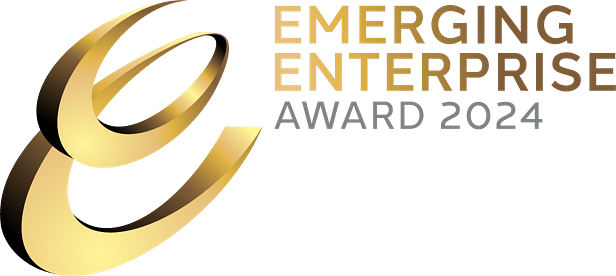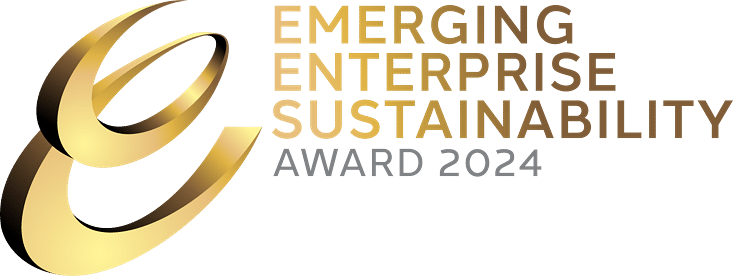TWO young Singapore companies are pioneering innovative solutions in their respective fields in the battle to adapt to climate change and protect the environment for future generations.
Biosciences firm N&E Innovations produces an antimicrobial agent derived from cashew and banana food waste that can be applied on different surfaces to destroy bacteria and prevent them from reappearing.
The formulation, called Vikang99, is the first in the world to be derived from food waste that would otherwise have been used as compost or gone into landfills. Vikang99 is also a sustainable alternative to traditional chemical-based antimicrobial agents that may harm the environment.
N&E is one of the three 2023 winners of the Emerging Enterprise Sustainability Award at the Emerging Enterprise Awards, an annual event co-presented by OCBC and The Business Times to recognise the young, bold ambition of businesses that have been around for under 10 years in Asia.
Another winner is REDEX Group, which is also contributing to building a greener world. REDEX operates Asia’s leading trading platform for renewable energy certificates (RECs), matching suppliers of solar, wind and other renewable energy sources with buyers who want to reduce their carbon footprint using RECs.
REDEX also helps businesses that have installed solar systems on their premises to earn extra income by selling the RECs generated to other users, providing an extra source of revenue that can accelerate the payback on their investment.

Recycling waste, cutting chemical use
Although still in the start-up phase, three-year-old N&E already has several successes under its belt. Its C2+ range of hand sanitisers and disinfectants, which are Vikang99-based, are available at Tangs and Takashimaya as well as via platforms such as Lazada and Shopee.
N&E has also found distributors for its products in Germany, Hong Kong, Malaysia and Cambodia.
CEO Didi Gan says she and co-founder Jaslyn Lee started looking at ways to harness the antimicrobial properties of cashews and other natural ingredients in 2020, given the ample supply of food byproducts.
“There are a lot of chemicals used in disinfectants, so me and Jaslyn decided to formulate a natural antimicrobial together that will be far more sustainable for the planet,” she says.
"C2+ disinfectant emits 0.33kg of CO2 equivalent per litre, significantly less than the 0.92kg emitted by alcohol-based disinfectants, effectively cutting carbon emissions by two-thirds."
Gan holds a biomedical degree from the University of Melbourne, while Lee has a PhD in Chemical and Biomedical Engineering from Nanyang Technological University. The two have known each other since primary school.
Their interest in developing natural products from waste stems partly from Gan’s allergy to certain chemicals and Lee’s susceptibility to eczema, a condition shared by Gan’s daughter Emma. N&E is named after Gan’s first two children, Nathaniel and Emma.
Managing waste is a global problem due to its effects on air and water quality. The UN Environmental Programme says decaying waste accounts for about 5 per cent of global greenhouse gas emissions, while chemicals that seep into the ground will eventually affect soil and water quality.
By reducing waste and eliminating the use of chemicals in its products, Gan says N&E is addressing two of the key challenges facing the world.

Growing REC awareness and trading in the region
As for REDEX, its contribution to sustainability stems from its role in streamlining and digitising the whole RECs issuance process. It is only by turning on the RECs supply spigot can the large-scale adoption of RECs as an instrument of trade and finance becomes a reality. REDEX is also focused on building the deepest liquidity of RECs through its Exchange and Marketplace services.
By improving the internal rate of return of renewable energy projects such as wind and solar with RECs, REDEX is helping to spur further investment into the renewables industry and accelerate the decarbonisation of the energy sector.
REDEX’s clients include the power generators and retailers in Singapore, independent power producers including EDPR APAC, Brookfields, Huaneng, and TotalEnergies, large sustainable corporates like City Developments, Samsung, Micron, and the supply chains of brand owners such as Apple, AWS and Nike.
REDEX operates a platform for clients who seek registration of their renewable assets, and verification for issuing RECs. The platform also allows clients to trade RECs, a concept that originated in the US and Europe some 20 years ago but has only started gaining attention in Asia over the last two to three years.
RECs, each representing one megawatt-hour of clean energy produced, are purchased by companies that want to lower their Scope 2 carbon footprint – indirect emissions mainly arising from the purchase of electricity from power companies. In most parts of the Global South, including Asia, it is not possible for companies to buy renewable electricity directly from the producer due to regulatory constraints. This results in RECs being the only way for companies to procure green energy in these countries.
Even in countries where power purchase agreements (PPAs) are possible, the best practice is to back these up with RECs issuance and retirement. This process prevents any double-selling by the renewable energy provider, and serves as an audit trail that can be extremely useful for the decarbonisation and traceability of entire supply chains.
“When I started in 2018, few people in Asia knew what RECs were,” says founder Kang Jen Wee. “This has really changed in the last two to three years, with the number of RECs issued and retired to make claims doubling every year, driven by growing concerns about climate change and a strong desire by corporates to procure green energy. This is a classic case of a rising tide.”

In Singapore, energy from solar installations goes into the transmission grid along with energy generated from natural gas. It is impossible for consumers to distinguish renewable energy directly as the power consumed off the grid comes from mixed sources. By purchasing RECs, the buyer owns the claim of using the clean energy in that mix.
RECs are, therefore, not an offset like carbon credits. Instead, the concept of RECs is about tracing one’s consumption of power to a renewable source that is connected by the same grid. Most direct PPAs that are delivered via the grid employ the same logic and mechanism.
The additional revenue stream from RECs, which is in addition to what renewable energy producers get from selling electricity, is an incentive to increase production. In many parts of the world, RECs are the only way for consumers to pay renewable players directly, and send a clear market signal that they care about how the power they consume is being produced.
REDEX recently launched its ‘REConnect’ mobile app in Singapore, which enables a simplified, DIY registration process for rooftop solar systems. Residential and commercial property owners who successfully register their solar systems can earn cash incentives from the RECs generated by their assets.
Looking ahead, Mr Kang says he expects an acceleration of new renewable projects and enhancements to grid connections in coming years, following the recent COP28 climate summit when representatives from more than 120 countries pledged to triple global renewable energy capacity and reduce fossil fuel consumption to avert the worst of climate change.
“REDEX is well-positioned to expand from Asia to the Middle East and Latin America to facilitate the development of these emerging renewable energy markets. We are excited to contribute to the global net-zero goal,” he adds.
Recognising the bold ambitions of young businesses in Asia
This is the second of a four-part series featuring the 2023 winners of the Emerging Enterprise Awards. Jointly organised by OCBC and The Business Times, the awards – now in its 16th year – honour innovative, resilient small and medium-sized enterprises under 10 years old. This year, the focus was on green and regional businesses, with winners gaining recognition and support from OCBC to maximise their potential.





